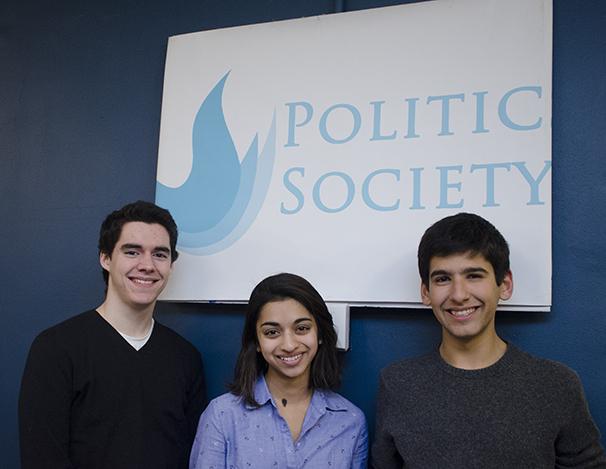
The NYU Politics Society is bringing a new competition to campus this spring.
The Policy Case Competition, hosted by the NYU Politics Society and sponsored by the Wasserman Center for Career Development, the Wagner School of Public Service and the NYU Politics Department, will take place for the first time on March 30 at NYU’s Grand Hall in the Global Center for Academic and Spiritual Life.
Six to 12 teams of NYU students will develop an argument and prepare 15-minute presentations for a potential course of action the U.S. government could take regarding a pressing public policy issue. These issues focus on domestic policies, international relations and economic reform.
CAS freshman Nikita Roach, the society’s marketing director, said the topics were chosen to encourage students to think critically about issues.
“These topics are not simple ones and they were chosen specifically because they cannot produce a one-sided solution,” Roach said. “They are multifaceted and complex and require equally complex critical thought and analysis.”
LS freshman William Lockwood, the society’s secretary, said competitors should focus their presentations on strong arguments rather than personal biases.
“The presentations should absolutely be nonpartisan, but that’s not to say that they shouldn’t be taking a strong position,” Lockwood said. “In their research, they’re supposed to make the best possible proposals they can, regardless of their own personal preferences or political ideologies.”
Following their presentations, the teams will take questions from an expert panel of judges including Sophia Kalantzakos, a former member of the Hellenic Parliament in Greece and a public policy professor at NYU, and Susan Stehlik, a professor of communication at NYU.
Steinhardt senior Alec Foster said his team comprises members of Student Net Alliance, which is a group that seeks to advance the digital rights of students. He said the team is focusing on limitations surrounding the National Security Agency’s power.
“While we’re all very involved in this field, this is the first time that we’ve come together as a group to draft a political solution to mass surveillance on a national scale,” Foster said. “It’s more challenging and nuanced than we anticipated, but our understanding of the issue has grown immensely since we began.”
A version of this article appeared in the Wednesday, March 25 print edition. Rahul Krishnamoorthy is a staff writer. Email him at [email protected].

























































































































































